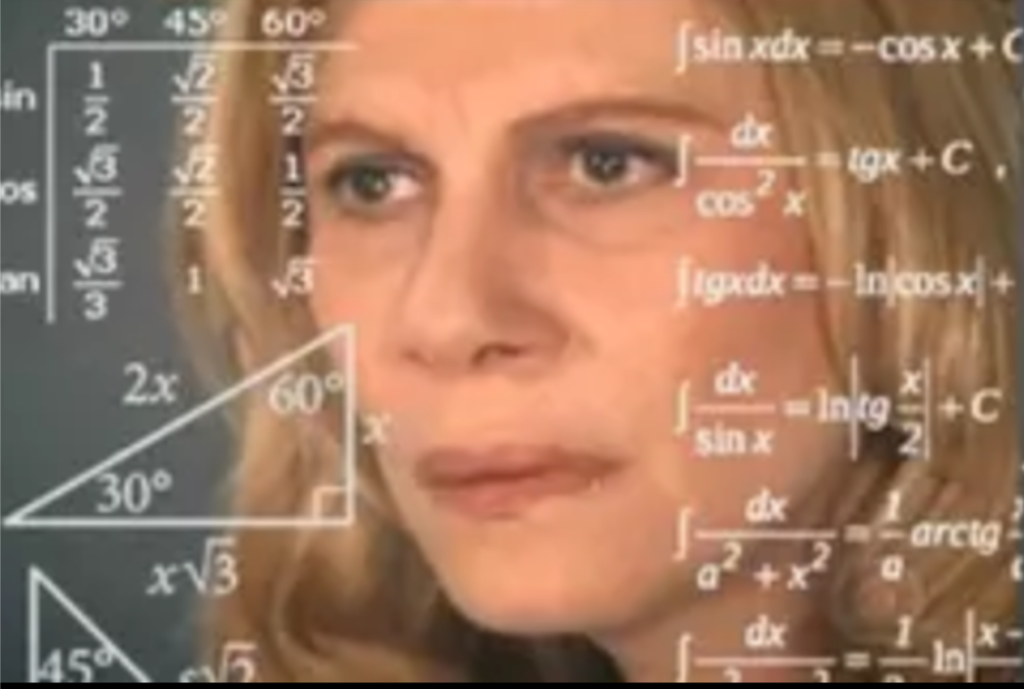Most of what I’ve seen sounds like Libertarians are actually anarchists who’ve been misinformed by the dominant culture about what anarchism really is.
What would you say is the reason you identify with libertarianism over anarchism?
Every anarchist I’ve ever discussed the matter with has embraced magical thinking as the mechanism for sustaining anarchist decision-making (e.g. rule by consensus) despite threats to the status quo (like an invading despot).
Libertarians, on the other hand, routinely seem to acknowledge that some public goods, e.g. national defense, must be handled by a state actor. Minarchy rather than anarchy.
Also in a radically anarchist state people would completely depend on themselves. As this is impractical they will eventually form connections and cooperate with each other more intensively which in turn obviously needs some rudimentary guidelines. And that’s just the beginning of a small state.
It’s weird whenever I see people talking about anarchy they always seem to forget that humans have family and friends and choose to work together to make things happen without needing an authority creating rules.
There is an authority though, one or both parents, or more dominant friends.
I thought Libertarian was just an American thing for people who don’t like the Republican candidate but don’t want anyone messing with gun or equality laws.
Ther’s non American libertarians but I think they’re more common in the US
It’s definitely more common in the US than elsewhere. Here in Spain where I live there is a Libertarian party but they are sort of a joke, more of a social club than anything else.
I think it’s because the US is essentially the only extant country that was explicitly founded on the principles of individual liberty and that element of our culture still runs deep more than two centuries later. We’ll see how much longer it survives but for the moment there is still a strong element of it in US culture.
Well, to be fair, the Libertarian Party in the US is kind of a joke. We can’t seem to put any kind of serious candidate forward for president.
For me, it’s a matter of practicality. Because sure, I’d love a perfect system in which everything operates entirely on voluntary cooperation, feel free to toss in a spherical cow with zero air resistance as well. But I don’t believe such a solution to be a practical option in reality, at least for the foreseeable future. Its basically a giant instance of the prisoners dillema, just at the scale of state militaries and nuclear weapons. And at that scale, I find it significantly more desirable to hedge our bets against bad actors than to rely on near universal acceptance of an ideal solution.
Is our current world system not the natural product of anarchy?
I’d consider libertarians to want a small government that does very little, while anarchists want none.
A small government would make and enforce laws, have a military, and maybe do some other public goods (though not many).
Anarchism is absolute chaos. Without any sort of government, anything goes. Probably the first thing to happen is a few people seize power, and technically you don’t have anarchism anymore, you have warlords.
While a small government wouldn’t enforce build codes and wouldn’t provide free Healthcare, it’s a far cry from no government.
People have the inherent ability to work together by choice without an authority creating rules, we see it every day. Seems like we could choose to work together to defend each other
Anarchy in greek means “non-rule”. It means, in essence, that no one has any authority over you or your property. So there can be no state and no courts or anything like that, because otherwise you would have to cede power and authority to someone else. In an absolute anarchist society, you would have to protect everything yourself.
But this is practically impossible so most anarchists tend to give away some competences to private companies, collectives or small governments which in the end is nothing else than libertarianism.
In that case, libertarianism sounds a little more stable, one government that is harder for a warlord to take over and that a company couldn’t just buy. Anarchy seems more prone to falling into totalitarianism than libertarianism.
Aside from that, it sounds less like libertarians are actually anarchists, and more like anarchists are actually libertarians.
That said, I guess they’re both asking “what’s the smallest amount if government possible?”.
People have friends and family to work together with, that doesn’t necessitate an authority creating rules
not necessarily in families but at some complexity you can’t manage all yourself. You will have to rely on others to protect you or your property when you are working or away and so on. If you need a better seawage system or better roads you will definitely have to ask experts to help you. In the end you will have to create rules together to coordinate. Now you nned somebody to enforce this and so on. Anarchy is more like a reset but I think that human nature will eventually prganize in societies and states. In the best case they define the rules and these rules are as minimal as possible.
Anarchists are historically left. Libertarians are historically right. At least in USA.
Stop right there: Anarchism means that there is no state or anyone that has any competence over you. Libertarians on the other hand support a minimal state that is just there to protect the core rights. Anarchism therefore means in it’s essence that you are responsible for managing and protecting your property all by yourself. However most Anarchists tend to accept some forms of deliberate power distribution.
This hardline distinction that you’re drawing between libertarians and anarchists is ridiculous and not rooted in reality. Many libertarians are and have been anarchists. Murray Rothbard and Lysander Spooner are two well-known examples.
So now we are using anarchist and libertarians as synonyms or what? It’s just what anarchism means. We can discuss how you interpret this term but you can’t change what it means. One is despises aany governmental structure whereas the other thinks a minimal state is necessary. Simple as. Of course these are extremes but I hate it when people say libertarians are right wing anarchists. Rather its the anarchists that are somewhat libertarian.
“Libertarian” is an umbrella term which can describe many anarchists as well as statists. Again, one of the most popular libertarians is Murray Rothbard, who was an anarcho-capitalist.
Exactly but as an umbrella term it’s by far more than anarchism. But you are right I have to change my wording.
Libertarianism is anarchy but with rules set forth by right-wing morons.
Most libertarians would consider themselves “Fiscally irresponsible and socially retarded”.
Anarchists on the other hand would say something like “no gods no masters”. For libertarians to match something like that, they would try but then break down and vote for Ron Paul.
Anarchists accept the world around them. Libertarians try to return to the gold standard, despite gold not carrying much value any more. Libertarianism wants to make america great again, since Libertarianism at its heart is a right wing religion.
People who claim to be libertarians are at a special place in life where they beleive the world can be changed for the better by giving everything to the ultra wealthy and leaving us to fend for scraps. Libertarianism isn’t a legit political science.
This is just a TL;DR: for a better understanding of life as a libertarian, dig a hole and stick your head in it. After all, the only way to understand someone is to think like someone.
Libertarians, upon breaking their bones and being unable to afford treatment respond with “that’s ok, it’s the free market!” When the last doctor in their area refuses to treat them because they didn’t make enough money. “Social programs are for losers!” The doctor nods and turns the libertarian out on the cold winter street. “The free market provides!” Mutters the libertarian.
Please adhere to the rules here. Generally any types of posts are allowed if they stay constructive or add some value to the discusion. Your post is a primitive rant that contributes few and is just annoying. You were probably reported for this reason, which makes this a first warning. If you continue to behave in a similar manner, your post will be deleted consequently.
What did I tell ya? Libertarians: ‘some gods, some masters’.
Anyway I was just answering OPs question, sport!
Brainless huh? Want to try addressing any of the points I raised or nah?
Dorks.
Why delete the comment when you can let the marketplace of ideas decide?
The answer is because the idea of libertarianism isn’t worth much.
Baseless rant, sure if you don’t know the meaning of words. Probably reported by a libertarian.
I kid! You wanna know something nice about libertarians? They always let you know who they are so you can have a chance to duck out of the conversation before the brain rot sets in. That’s swell!
I don’t have anything against your opinion but I have something against your behaviour. This is not a place to call people names and behave like a 12 year old. You can write whatever you want but please stay constructive. If this is impossible for you consider finding another community that somehow better suits you needs.
Most civil lemmy moderator award goes to you. No joke. Keep up the great work.
Thanks man! This is indeed better ;) Also apologies for the harsh comment of mine. I just don’t wan’t this place to become a hostile, unfriendly place just like the Reddit community did. But I also never would censor anybody because of his opinion.
(Responding to your edit) yeah no worries about harshness. You’re in a tough situation, moderating a community for a political philosophy that seems (to me) to attract passionate responses for and against that philosophy. It would be eaiser to moderate a more well-liked community or idea such as “breathing”. Hard to get people who will hate that idea - or at least people who will hate it for very long.
Indeed it’s very tricky to find the right balance between moderation and free speech. Thats why I only step in when the tone of the discussions gets unconstructive. Other than that everybody has their own opinion abouy the right political philosophy and who am I to judge them?
Sure, this is your opinion. Could you please elaborate what political system you think solves these issues?
Its less about me talking to you and more me airing my grievences with the political philosophy in general. I find libertarianism to be a stepping stone philosophy usually taken on by people who are just getting into politics. It’s a nice idea, rought speaking that “people don’t deserve the social programs we are giving them, many abuse the system, and we are in debt and we must focus on building a viable economy by tackling debt and moving to make money represent something as it used to back when the US had the gold standard.” Unfortunately that philosophy takes a misstep out the gates with the assumption that social services aren’t needed, and the assumption that decreasing social services somehow makes it easier to run an economy. I find the whole philosophy to be taken up largely by folks who haven’t needed social programs themselves.
I got the government to pay for 2 years of my schooling, through a dislocated worker program when I was laid off at my job. This allowed me to get a degree, which I used to get a 6 figure salary and now pay back in the form of property and income taxes. These taxes then go to fund other social programs which can sometimes create more tax revenue by lifting others out of poverty or otherwise making higher education more accessible. For what it’s worth, I vote democrat in the US because it’s the only viable option - a vote in any other direction, without grassroot support is a wasted vote. Ideally, I would vote for the party that most perfectly aligns with my values, but there is no party like this in the US, not at least one with a real chance of winning.
Libertarianism also suffers from having a clear definition. I think the one I tried to give in this comment is in good faith but I recognize it is incomplete. You have libertarians who just don’t want to fund social programs ranging from libertarians who beleive all taxation is theft to libertarians who beleive that we should abolish drivers licenses. The best antidote to that would be common sense but this isn’t available as a political party, at least not in the US.
Right now the best the US has to offer is the democratic party, and while it has more to offer non billionaires than the republican party, most leftists in the US (myself included) would rather vote for a truly leftist party, believing the democrats to be more center-right these days than the increasingly-far-right republican party. The overton window sure be sliding right.
I am also not an anarchist, nor do I know much about anarchy. I do know it’s less structured tha. The beliefs held by libertarians but I don’t know if that says much.
I really enjoyed reading this. I prefer political philosophies that try to logically explain why they do what they do and where they draw their lines. What I don’t like is the notion of whitnessing a problem and then trying to solve it by adding regulation and not considering the bigger picture.
Regulation is just enforcement of rules. We make rules to regulate parts of our country which are out of control. Inherently, regulation isn’t a bad thing. The problem is that money buys regulation, which means successful industries get to write their own rules. I’d say then that the problem is money in politics, but then there’s a bit of an issue: for a US party to be successful enough to be on the ballot, they need to raise enough funds. Money then goes to buy speech and therefore thoughts, hearts and minds. Most of AM radio in the US is paid for by right wing actors. Lots of successful right wing social media influencers moved to the right because the right pays more than the left. In the end, everyone needs money to survive and #yolo so might as well live comfortably. It’s understandable but not excusable in my opinion.
I am assuming you’re a libertarian given your choice to moderate this community, but I might not be correct in that assumption. Would you mind explaining why you chose that philosophy (or if I’m wrong, then why choose whatever philosophy you choose)? I am curious what you mean by “draw their lines”, since we are talking ultimately about choosing a philosophy to be governed under. I am able bodied and have a good job, but this may not last forever. I cannot keep up with the rat race of capitalism forever, and I may end up with broken bones from an auto accident where I was not at fault, unemployed, reliant on social programs because my only other option is homelessness. I truly truly hope that if and when that time comes, the current governing philosophy will have not “drawn me outside of the lines” that they beleive in. This is my major gripe about libertarianism… just because you don’t need things now doesn’t mean you won’t later, and that people don’t need them now.
OK, let’s start from the beginning. Basically, there are two notions of how to approach a political system. Either you go to one extreme and say “basically everything is forbidden but every individual has (positive) rights that should ensure his freedom”. On the other hand, you can also say “basically everything is allowed but your rights can be restricted by the (negative) rights of others” (see positive and negative rights).
I would argue that most modern societies try to achieve an ideal balance between freedom and regulation. Libertarianism seeks to maximise the freedom of each individual and minimise restrictions. In other words, it is not against regulations, but tries to achieve its goal by means of them. However, these rules should be as minimal and basic as possible, without redundancy and unnecessary burdens that could somehow hinder people. How exactly this balance between regulation and freedom should look and where exactly one draws the line for the extent of regulations ultimately depends on the interpretation of each individual.
Personally, I am a strong advocate of the logical approach in law and politics. The laws should be an unambiguous, logically coherent and broad foundation on which one can trace back every action as far as possible. The clearer and more minimal the law, the easier it should be to understand. I see this realised in the basic principles of natural law, the non-aggression principle or the self-ownership principle. I believe that all problems can be broken down to a few basic principles, from climate change to property damage or theft.
In my opinion, a (minimal) state is needed to enforce these rules and thus protect freedom. To do this, you have to give up some of your competences to the state, which reduces your own freedom to a certain extent but ensures stable and maximum social freedom (if everyone were maximally free, they could also take away each other’s freedom). In a way, you could describe me as an effective freedom altruist.
But what exactly this minimal legal basis should look like is difficult to say and can only be found through trial and error. Therefore, with every action I take and every decision I make in my everyday life, I work for a change that is directed towards this libertarian vision, and thus I also try to test and adapt these theses again and again. Sustainable change will never be achieved through a radical leap or the demands that follow, but through a step-by-step approach to it. Without a clear final goal or a final vision, however, it is not possible to indicate a direction and the effort is lost in the turmoil of political and social discourse.
In this sense, I do not want to explain to you what is right or wrong, but rather motivate you to find and explore your own vision. I have made my vision from a libertarian point of view but as I said it depends on how you see it. Good luck on your path!








